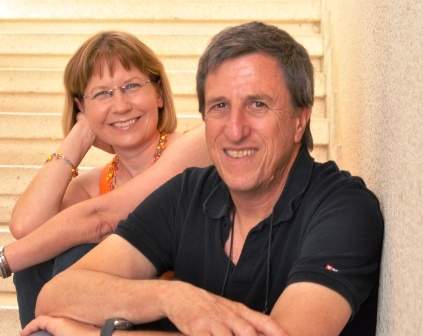When did modern humans arrive in Europe and Asia? At what rate have cultural changes spread from one region to another throughout history? How did Neanderthal teeth and bones differ from ours? These and many other topics will be investigated at the new Max Planck – Weizmann Institute of Science Center in the Field of Integrative Archaeology and Anthropology.
The Center’s directors are
Prof. Stephen Weiner of the Weizmann Institute and Prof. Jean-Jacques Hublin of the Max Planck Institute for Evolutionary Anthropology. Activities in the Center will be undertaken by two groups of scientists, in Israel and in Germany, each consisting of approximately 10 scientists and students. In addition to performing their own research, the groups will engage in collaborative activities between the Weizmann Institute and the Max Planck Institute.
Two separate tracks will focus on “The Timing of Cultural Change” and “Physical Anthropology through Bone and Tooth Structure-Function Studies,” and both will make use of scientific and technological advances developed in
Weizmann Institute labs.
Among these advances is the planned installation of new accelerator mass spectrometry (AMS) equipment in the Institute’s Physics Faculty. The new radiocarbon lab, directed by Dr. Elisabetta Boaretto, is expected to have a major impact on archaeology research both locally and internationally. Because the AMS – which will be the only machine of its kind in the entire Middle East – is capable of detecting C-14 in extremely minute concentrations, it will be possible to perform the dating very fast and on minute quantities of material, such as a single lentil or grain of wheat, or a small trace of collagen in bones. This is an essential feature, because over thousands of years, organic matter on which radiocarbon dating is based tends to diminish and disappear. The new AMS lab, made possible by a gift from Dr. Naim Dangoor CBE of London, founder and head of the Exilarch's Foundation, is expected to be the first radiocarbon-dating laboratory in the world dedicated to research rather than to providing a service.
Prof. Stephen Weiner's research is supported by the Exilarch's Foundation; the Maurice and Vivienne Wohl Charitable Foundation; the estate of Hilda Jacoby-Schaerf; the Helen and Martin Kimmel Center for Archaeological Science, which he heads; the European Research Council; and the J&R Center for Scientific Research. Prof. Weiner is the incumbent of the Dr. Walter and Dr. Trude Borchardt Professorial Chair in Structural Biology.
